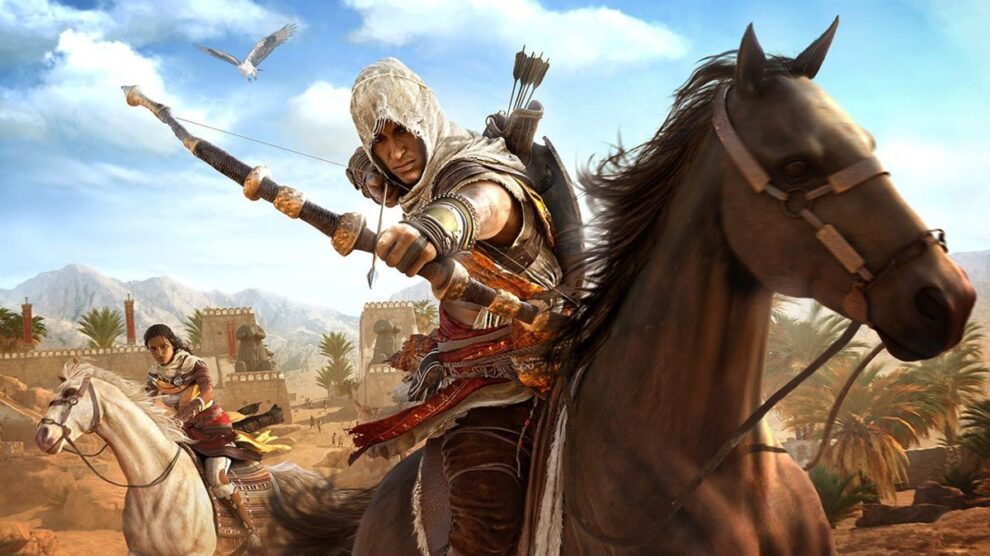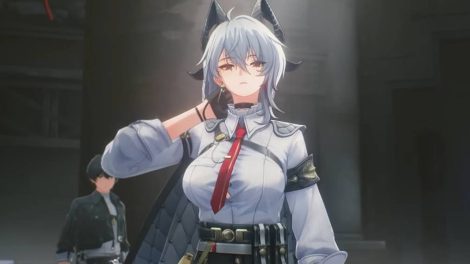The gaming world is set for an intriguing clash in 2025 as Ubisoft’s Assassin’s Creed Shadows, recently delayed, finds itself in direct competition with Sony’s newly announced Ghost of Yotei, the sequel to the acclaimed Ghost of Tsushima. Both games are set in feudal Japan, promising players immersive experiences filled with ninjas, samurai, and ronin. This unexpected face-off has sparked discussions about market saturation and game differentiation in the industry.

Ubisoft’s Stance on Competition
Despite the apparent similarities, Ubisoft CEO Yves Guillemot remains optimistic about the prospects for both games:
“There’s a lot of space for very high-quality games, and those two games can sell very well,” Guillemot stated.
Guillemot emphasized the unique features of Assassin’s Creed Shadows, particularly its dual protagonists system:
“The focus is to really make sure that we deliver a fantastic experience with this dual protagonist approach and two different and complimentary gameplays…. a setting taking place in feudal Japan should be really enticing,” he explained.
Key Differentiators for Assassin’s Creed Shadows
- Dual protagonists: Players can control either a ninja or a samurai
- Complementary gameplay styles reflecting the two character types
- Integration with the established Assassin’s Creed lore and universe
- Day 1 release on Steam, marking a shift in Ubisoft’s distribution strategy
- Confirmed PS5 Pro enhancements
The Competitive Landscape of 2025
The delay of Assassin’s Creed Shadows to February 2025 places it in a highly competitive release window. Major titles scheduled for 2025 include:
- Avowed
- Civilization VII
- Monster Hunter Wilds
- Ghost of Yotei
- Potential release of Grand Theft Auto VI
Additionally, 2025 is expected to see the launch of Nintendo’s next-generation console, tentatively referred to as the Switch 2, which could further impact the gaming market dynamics.
Assassin’s Creed: A Franchise Overview
To understand the significance of Assassin’s Creed Shadows, it’s worth looking at the franchise’s evolution:
Chronological Order of Mainline Assassin’s Creed Games
- Assassin’s Creed Odyssey (431 B.C.–422 B.C.)
- Assassin’s Creed Origins (49 B.C.–44 B.C.)
- Assassin’s Creed Mirage (861–???)
- Assassin’s Creed Valhalla (872–878)
- Assassin’s Creed (1191)
This timeline showcases the series’ broad historical scope, spanning from Ancient Greece to the Third Crusade. Assassin’s Creed Shadows will add feudal Japan to this diverse historical tapestry.
The Evolution of Assassin’s Creed Gameplay
The franchise has undergone significant changes since its inception:
- Original focus on stealth and parkour mechanics
- Gradual introduction of more open-world elements
- Shift towards RPG mechanics with Origins, Odyssey, and Valhalla
- Return to stealth-focused gameplay with Mirage
- Dual protagonist approach in Shadows, potentially blending different gameplay styles
Looking Ahead: Assassin’s Creed Shadows and Ghost of Yotei
As both games approach their release dates, several factors will be crucial in determining their success:
- Differentiation in gameplay mechanics and storytelling
- Marketing strategies and pre-release hype generation
- Critical reception and early player feedback
- Post-launch support and content updates
- Performance on next-gen hardware, including the PS5 Pro
Conclusion
The competition between Assassin’s Creed Shadows and Ghost of Yotei represents a fascinating moment in the gaming industry. It highlights the challenges of differentiation in a crowded market, the importance of unique selling points, and the potential for multiple high-quality games to coexist even with similar settings. As we approach 2025, all eyes will be on how these two titles distinguish themselves and capture the imaginations of players worldwide.
Related Articles:
- Assassin’s Creed Shadows: Hands-Off Preview
- Ghost of Yotei: Everything We Know So Far
- The Best Video Games of 2024
External Resources:










Add Comment